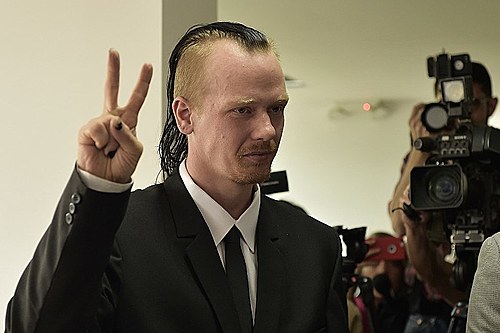
A second instance court in Ecuador found Swedish programmer Ola Bini guilty of unauthorized access to a computer system in the country. The decision was given last Friday (5) and sentences Bini to one year in prison and payment of a fine worth four minimum wages.
On the social network
The other defense lawyer, José Charry Dávalos, also spoke out on the social network. He posted that Ola Bini’s case is “further evidence of a systemic problem: decision-makers in the judicial system take for granted that their decisions have no consequences. So, with that confidence, they decide what they want.”
Friendship with Assange
The court case against Ola Bini began in 2019, shortly after his friend Julian Assange was arrested in London. Bini was detained by Ecuadorian authorities without any charges being brought against him. The then president of Ecuador, Lenín Moreno, even stated that the activist could have been trying to interfere in the United States election. After 70 days in prison, Bini was released and began to respond to the case in freedom.
Before his arrest, Bini had visited Assange during the Wikileaks founder’s stay at the Ecuadorian embassy in London.
:: Watch: Four years in prison for exposing crimes: why is Assange persecuted by the US government? ::
The trial of the case began in November 2022, and the sentence was issued on May 31, 2023, when Ola Bini was found innocent in a unanimous decision at the first instance. After the acquittal, Bini stated that “it is very important to make it clear that this decision is, as far as I know, the first time that an Ecuadorian court has spoken on the subject of access to a computer system, or a telecommunications system. What What’s even more important is that they have stated that getting to the page that asks for a password or username is not accessing that page in an illegal manner.”
The Prosecutor’s Office appealed the decision, and now, in the second instance, it managed to convict the programmer. Bini spoke out on the social network X, saying that they will appeal to the National Court. “We will keep fighting,” he wrote in the post.
Since 2019, several human rights and digital rights organizations have spoken out about the case. A report by the NGO Acess Now, based on research from Harvard University, points out that Bini was the target of judicial harassment and persecuted without proof of any crime. Amnesty International also points to violations during the process, including intimidation of Fabián Hurtado, who worked for Bini’s defense and had his electronic equipment violently confiscated by the Ecuadorian police.
Editing: Raquel Setz

Source: www.brasildefato.com.br

